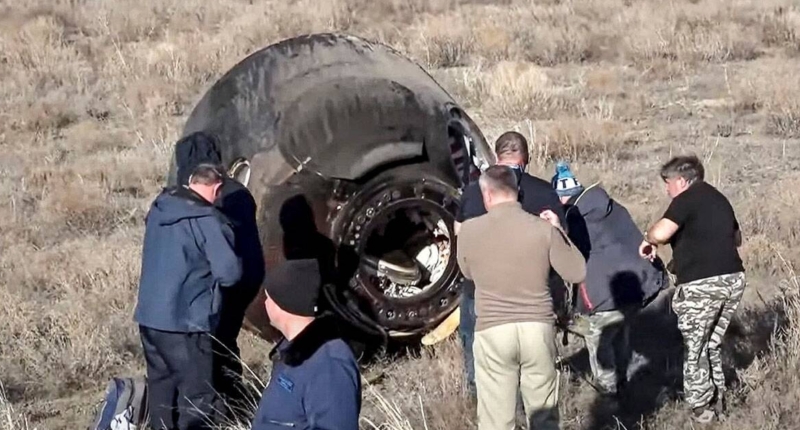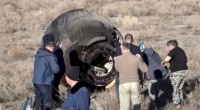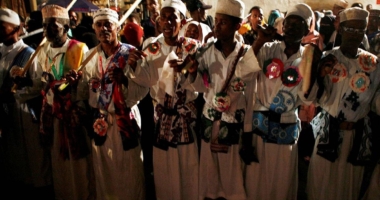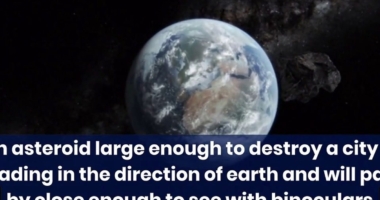Two Russian cosmonauts and a U.S. astronaut who were scheduled to return to Earth in March will now stay on the ISS until September. The capsule returned to Earth on Tuesday carrying 218 kg (481 lb) of cargo, including the results of scientific experiments and equipment from the station that would be analyzed on Earth or reused in future missions. Despite the strained relations between Washington and Moscow, both countries continue to cooperate in space, with astronauts stationed together at the ISS and also ferried back and forth jointly. The ISS, a science laboratory orbiting some 250 miles (400 km) above Earth, has been occupied continuously for more than two decades under a U.S.-Russian-led partnership that also includes Canada, Japan, and 11 European countries.
A Soyuz MS-22 capsule that was damaged after coolant began leaking from the craft while docked at the International Space Station (ISS) has landed back on Earth. The landing occurred on Tuesday afternoon in the Kazakh steppe, a few hundred kilometers from Russia’s Baikonur cosmodrome. The module successfully completed the almost two-hour return journey from the ISS without a crew. The event was broadcast online by the Russian space agency, Roscosmos.
According to experts, the coolant leak was caused by a tiny meteorite that is believed to have pierced the capsule’s outer skin. The hole was just 0.8 millimeters wide, and images captured from the ISS’s exterior showed the coolant fluid spewing into space. At one point, the temperature inside the capsule rose to 30 degrees Celsius (86 degrees Fahrenheit). The leaks prompted Roscosmos and NASA to rearrange their schedules and postpone space walks.
Last month, Russia sent a back-up capsule, the MS-23, to the ISS, and decided to bring the damaged MS-22 capsule back to Earth without a crew. The capsule’s landing marks the successful completion of an event that was closely monitored by the scientific community.
Due to changes in plans, two Russian cosmonauts and a U.S. astronaut, who were scheduled to return to Earth in March, will now stay on the International Space Station (ISS) until September. The capsule returned on Tuesday with 218 kg (481 lb) of cargo, including the results of scientific experiments and equipment from the station that would be analyzed on Earth or reused in future missions. Despite relations hitting their lowest point in decades, Washington and Moscow continue to cooperate in space, with astronauts stationed together at the ISS and also ferried back and forth jointly. The ISS, a science laboratory orbiting some 250 miles (400 km) above Earth, has been occupied continuously for more than two decades under a U.S.-Russian-led partnership that also includes Canada, Japan, and 11 European countries. Russia has announced that it plans to quit the ISS and launch its own independent space station at some point in the future, although details about how and when this will happen are still being discussed.
Don’t miss interesting posts on Famousbio










